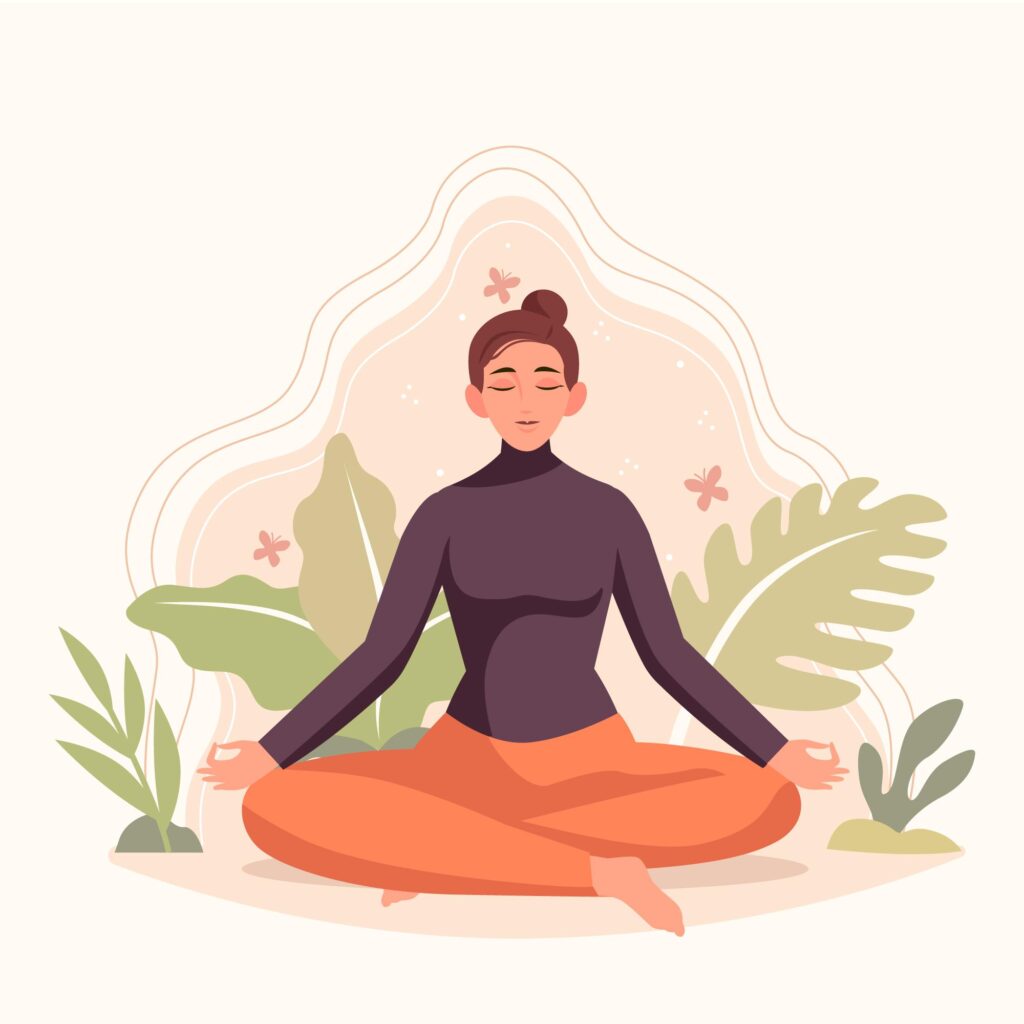
Meditation is a practice that combines mental and physical methods to help you focus or cleanse your thoughts. You can meditate to unwind, lessen tension and anxiety, and more, depending on the style you select.
Ten health advantages of meditation and tips for practicing mindfulness
Numerous health benefits of regular meditation practice have been shown by research. These ten are as follows:
1. Stress reduction: Meditation may help reduce stress. Additionally, it has the potential to reduce the symptoms of stress-related illnesses such as fibromyalgia, PTSD, and irritable bowel syndrome (IBS).
2. Better memory: Regular meditation practice can help improve focus, which can help with memory and mental clarity. These advantages might help in the battle against dementia and memory loss associated with ageing.
3. Improved focus: Meditation extends your attention span, enabling you to concentrate for longer periods of time.
4. Enhanced willpower: The mental discipline required to break bad behaviors is developed through meditation.
5. Improved sleep: Meditating can reduce the amount of time it takes to fall asleep and enhance the quality of your sleep.
6. Less discomfort: Meditation improves mood management while lessening pain. This may assist in treating chronic pain in addition to medical attention.
7. Reduce blood pressure: People who frequently meditate experience a reduction in blood pressure both during and after meditation sessions. By doing so, heart disease may be avoided and the heart and blood arteries may be under less stress.
8. Reduced anxiety: Consistent meditation practice lowers anxiety. Additionally, it can assist with mental health problems like obsessive-compulsive behaviors, anxieties, and social anxiety.
9. Less depression: Studies have shown that meditation helps lessen the incidence of depression.
10. Increased compassion: You can discover your best self, improve your understanding of yourself, and act more compassionately toward others by practicing meditation.
How to meditate
- Select a Calm Area: Look for a peaceful, well-lit area where you can lay down or sit down without being bothered. It could be a calm area outside, a nook in your house, or wherever you just feel at ease.
- Sit Comfortably: If lying down is more comfortable for you, you can also sit cross-legged on a cushion or with your feet flat on the ground on a chair. The secret is to keep your posture relaxed but attentive.
- Establish a Time Limit: Choose the duration of your meditation. Novices can begin with as little as five to ten minutes, and as they grow more accustomed to the exercise, they can progressively extend it.
- Close Your Eyes or Leave Them Slightly Open: Although keeping the eyes slightly open and softly staring at a point in front of you can assist reduce visual distractions, closing them can also help.
- Concentrate on Your Breath: To begin your meditation practice, take a few slow, deep breaths. After that, focus on your breathing. Take note of how your breath feels as it enters and exits your body. You can concentrate on your chest’s rise and fall or the feeling of breath going through your nostrils.
- Recognize Thoughts without Passing Judgment: You may notice that your mind wanders during your meditation. This is typical. When you see your thoughts straying from your breathing, softly observe them, don’t judge them, and then gently return your attention to your breathing.
- Practice Mindfulness: Being totally present and involved in the moment is the practice of mindfulness. Try to develop mindfulness throughout your meditation by focusing on the sounds around you, your own body’s sensations, and any other sensory experiences without becoming sucked into them.
- Be persistent and patient: learning to meditate is a skill that requires time and practice. Be kind to yourself and try not to lose hope if you have trouble focusing or if your thoughts stray. Simply remember to return your focus to your breathing whenever you find yourself getting sidetracked.
- Finish with Gratitude: After your meditation practice, give yourself a moment of thanks for spending the time to care for your body and mind. Open your eyes, then slowly return your attention to your surroundings.
- Practice Often: When it comes to meditation, consistency is essential. Try to make time for meditation in your daily schedule, even if it’s only for a short while. Regular practice will probably pay off in the long run by helping you become more relaxed, focused, and emotionally resilient.
Conclusion: Choosing a meditation technique that works for you is the most important thing, as there is no right or wrong way to do it. Try out a few different approaches and tactics until you find one that appeals to you.